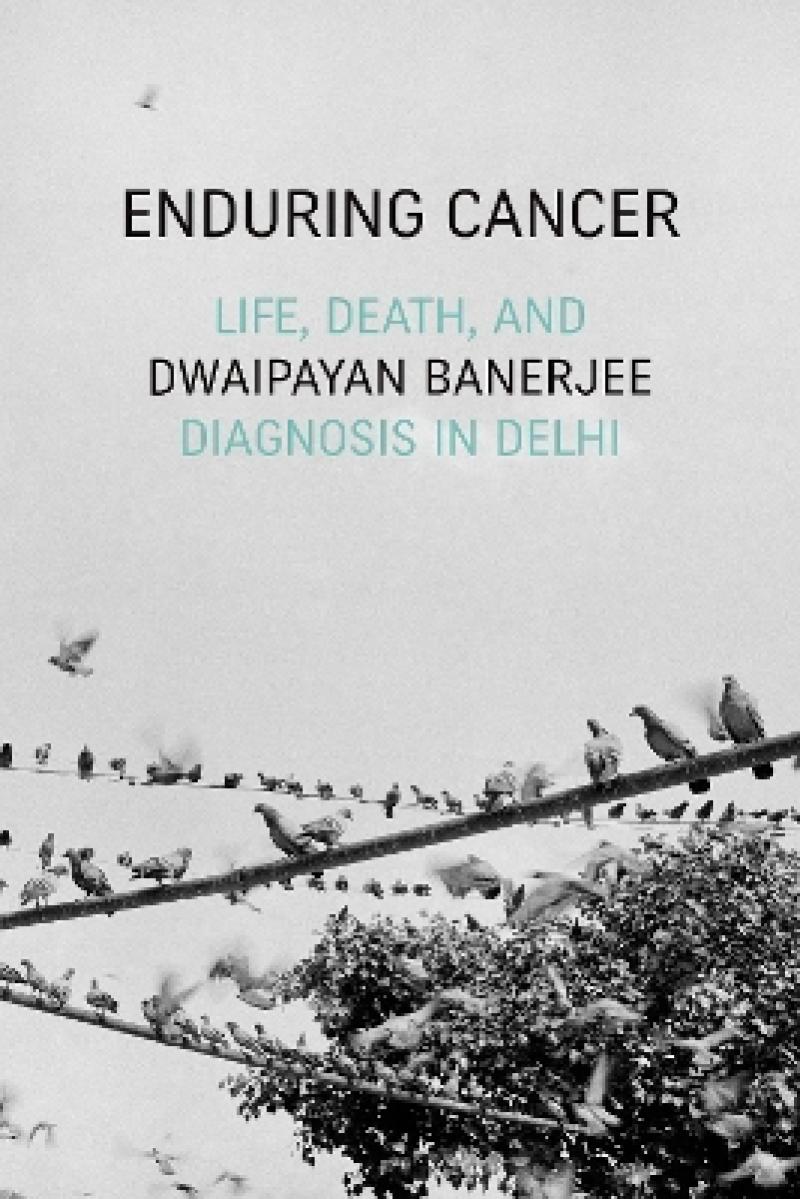“In this wonderful ethnography, Dwaipayan Banerjee shows how cancer in India exists across many relationships, aspirations, frustrations, gendered battles, caregiving gestures, medical sciences, and familial trials. In its lives far beyond the body, cancer is both concealed within the folds of secrecy and stigma and yet still able to reveal the hidden stories that only it can tell. Subtly written and ethnographically rich, this book will have a very wide reach.” - Vincanne Adams, editor of (Metrics: What Counts in Global Health) “How do people navigate the uncertainties of cancer? Dwaipayan Banerjee's vivid ethnography shows how secrecy and silence are the currencies for knowing and managing cancer's diagnosis, treatment, pain, and survival in India. He demonstrates the profound implications this has for the ways people voice illness and forge connections with others in uncertain times. This timely and important book will be a landmark for thinking about survival and endurance in medical anthropology, science studies, public health, and South Asian studies.” - Harris Solomon, author of (Metabolic Living: Food, Fat, and the Absorption of Illness in India) “In Banerjee’s paradigm-shifting <i>Enduring Cancer</i>, we learn of a politics of endurance and invention; we also see how the study of cancer in India offers a unique opening to critique structural failures and reimagine a collective politics of care.” - Durba Mitra (Isis) <p>“In his compelling book, <i>Enduring Cancer</i>, Dwaipayan Banerjee shuns common contemporary framings of cancer in India.... Banerjee’s book is a sensitive analysis of what it means to battle cancer and poverty at the same time in contemporary Delhi. As such, it will appeal for anthropologists interested in the politics of life and death, health and disease.”</p> - Éva-Rozália Hölzle (PoLAR) “This eloquently written ethnography sheds light on the social life of cancer not only in India but for humankind.... It will be essential reading for anyone interested in the anthropology of healthcare and medicine in India and for global and public health policymakers and practitioners.” - Cecilia Coale Van Hollen (Journal of Anthropological Research) "A sensitive and insightful exploration of the fraught relational worlds within which cancer appears. . . . By juxtaposing hopeful aesthetic representations of cancer with its lived ethical dilemmas, Banerjee offers the analytic of endurance, showing how his interlocutors are responsive to the durability of pain, the intensity of social vulnerabilities, and the slow violence of incomplete medical care." - Victoria Sheldon (Journal of Asian Studies) <p>“A powerful book. . . . [<i>Enduring Cancer</i>] should be widely taught and read by medical anthropologists interested in noncommunicable diseases in the Global South, particularly South Asia, as well as by public health practitioners and bioethicists.”</p> - Saiba Varma (Medical Anthropology Quarterly) “Banerjee’s <i>Enduring Cancer </i>offers an ethnographically rich meditation on how cancer diagnoses amplify histories of embodied vulnerability, both interpersonal and infrastructural. . . . His use of eclectic source materials and a mixed-methodological approach gives <i>Enduring</i><i>Cancer </i>a rare analytic complexity.” - Shireen Hamza & Kelsey Henry (Gender & History) “In a context where death is ever-present, state abandonment is all but assured, and radical social change is far from forthcoming, Banerjee gives voice to the quieter strategies of patients and caregivers who must find ways to endure, and to live and die ethically, in the present.” - Gowri Vijayakumar (The Journal of Development Studies)
Introduction 1
1. Concealing Cancer 35
2. Cancer Conjugality 64
3. Researching Pain, Practicing Empathy 84
4. Cancer Memoirs 121
5. Cancer Films 142
6. 171Endurance
Notes 183
Bibliography 205
Index 219


























